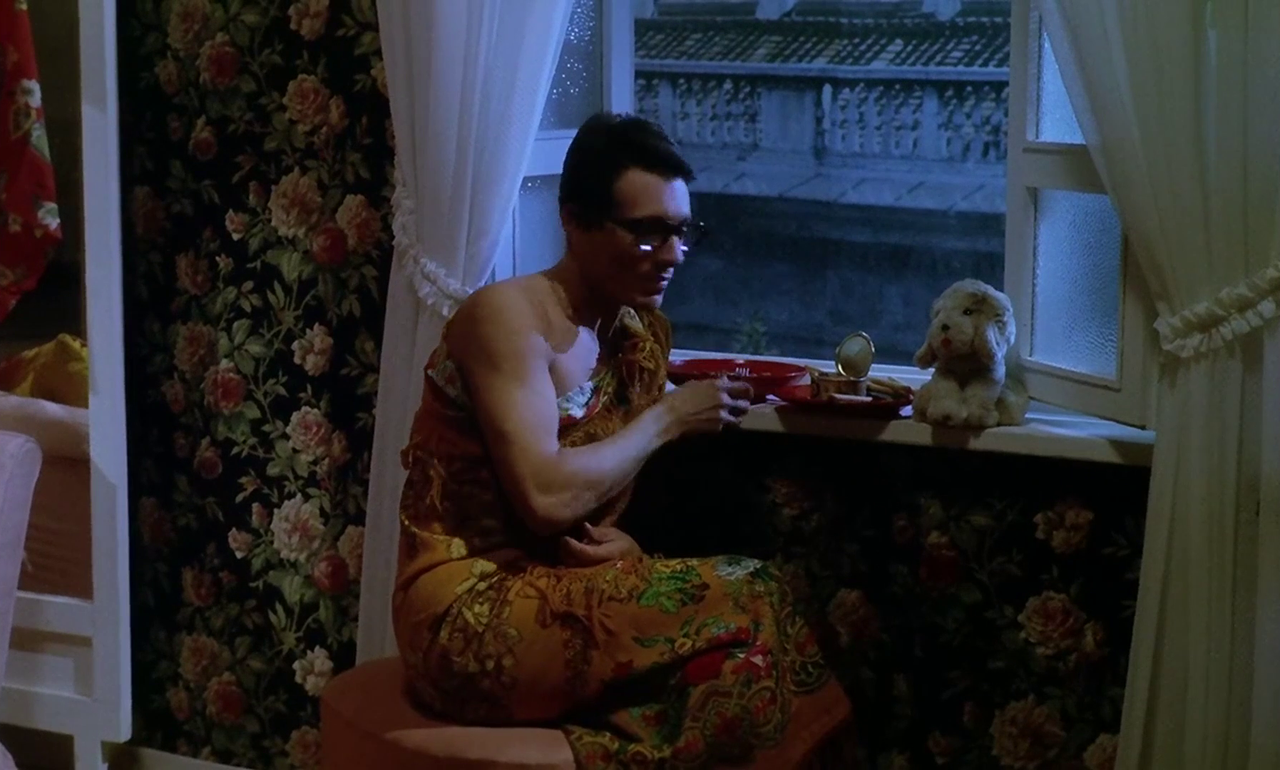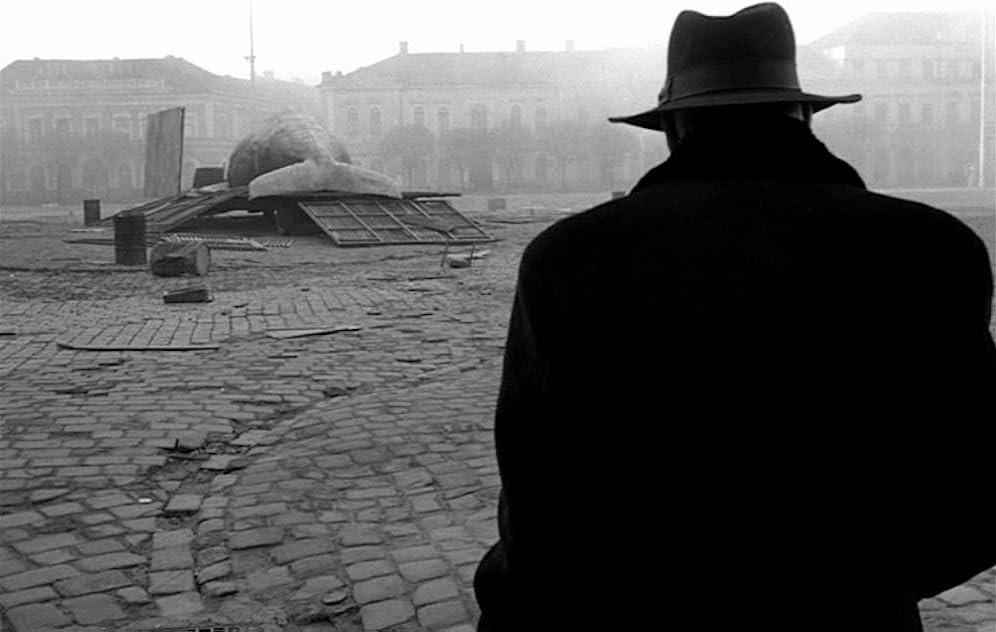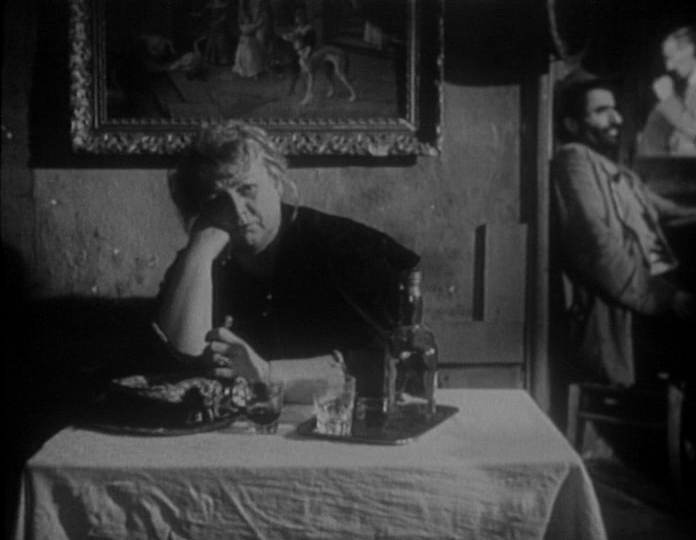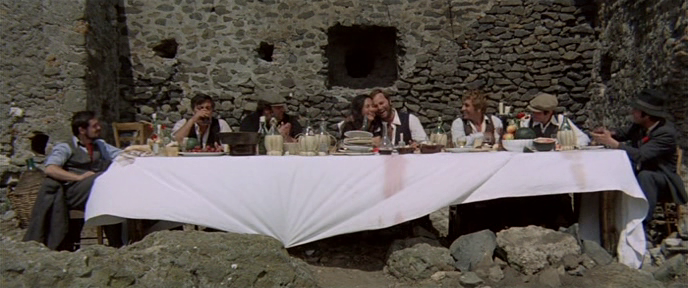A cavallo della tigre [On the Tiger's Back / Jail Break] (Luigi Comencini, 1961)
Jan
6

Two men in a doorway with a stunned look on their faces and their mouths stuffed with food. DP: Aldo Scavarda.
italy
“The first section's dead. There's no one left. We lost contact with the second. The third is reorganizing. All that's left is the fourth. It's enough to start over with.”La battaglia di Algeri [The Battle of Algiers] (Gillo Pontecorvo, 1966)
Dec
18
Arabic Language Day

Petit Omar (Mohamed Ben Kassen) reading out a letter to Ali La Pointe (Brahim Hadjadj) in the قصبة, (Cashbah). If it were not for the leads' jeans and sneakers, this scene could be in any century. DP: Marcello Gatti.
Speak an Arabic language on UN Arabic Language Day
“Feelings unspoken are unforgettable.”Nostalghia [Nostalgia] (Andrei Tarkovsky, 1983)
Dec
10
Worldwide Candle Lighting Day


Hands shield something on stone steps. In the next shot, with the hands withdrawn, we see a small, lit candle. DP: Giuseppe Lanci.
Lit a candle on Worldwide Candle Lighting Day (note: the link contains references of child death).
– Andrei Gorchakov
L'udienza [The Audience] (Marco Ferreri, 1972)
Nov
14

Amedeo (Enzo Jannacci), a young man with heavy rimmed glasses wrapped in heavy, flowery drapes as if it's a toga, eating late at night. There's an opened can on one of his plates. A sad looking stuffed toy dog hangs out. DP: Mario Vulpiani.
Maciste all'inferno [Maciste in Hell] (Guido Brignone, 1925)
Oct
17
sinners

A demon eating a poor sinner. Numerous scenes are directly taken from Gustave Doré's illustrations of Dante's Divina Commedia, chapter Inferno. DPs: Ubaldo Arata, Massimo Terzano & Segundo de Chomón.
“I'm a volcano of ideas.”I pugni in tasca [Fists in the Pocket] (Marco Bellocchio, 1965)
Oct
15
soup

A smirking Alessandro (Lou Castel) pours soup with a ladle with his tired-looking mother (Liliana Gerace) observing. DP: Alberto Marrama.
– Alessandro
Morire gratis (Sandro Franchina, 1968)
Oct
2
National Michelle Day

Michelle (Karen Blanguernon) and the artist (Franco Angeli). DP: Guido Cosulich.
“All I ask is that you step with me into the boundlessness, where constancy, quietude and peace, infinite emptiness reign.”Werckmeister harmóniák (Béla Tarr, 2000)
Sep
26
Shamu The Whale Day

A man in a dark hat and coat approaches the whale. The huge creature lays in an enormous open wooden crate in the middle of a town square. DPs: Patrick de Ranter, Miklós Gurbán, Erwin Lanzensberger, Gábor Medvigy, Emil Novák & Rob Tregenza.
– János Valuska
The Medium (Gian Carlo Menotti, 1951)
Sep
18

Madame Flora (Marie Powers) by herself at a small table in a shady bar. DP: Enzo Serafin.
Ostia [A Violent Life] (Sergio Citti, 1970)
Sep
11
supper

A group of vulgar looking people eating outdoors at a very long table in front of an old crumbing wall at a very long table. The scene is a re-enactment of Da Vinci's Il Cenacolo / Last Supper. DP: Mario Mancini.